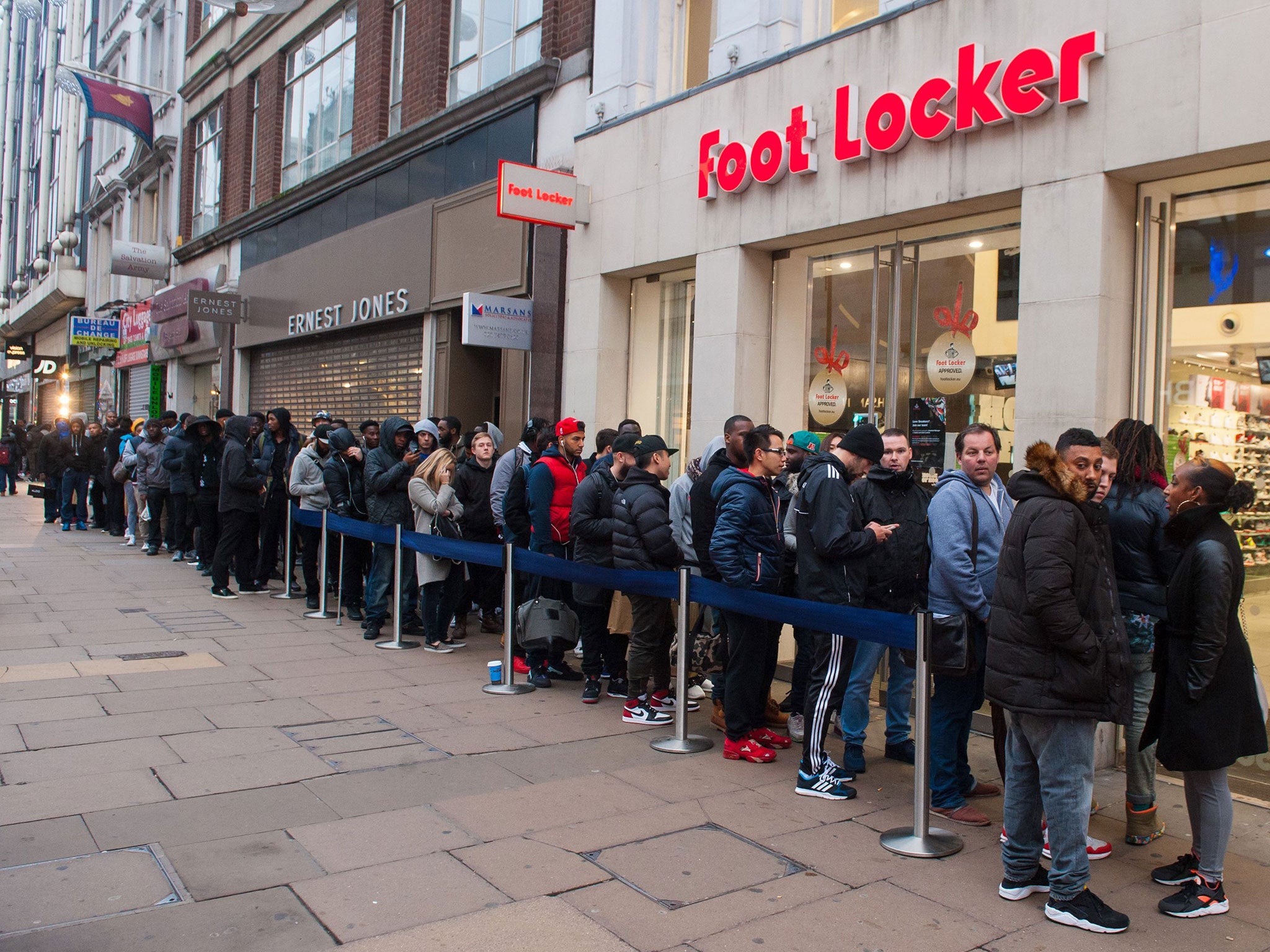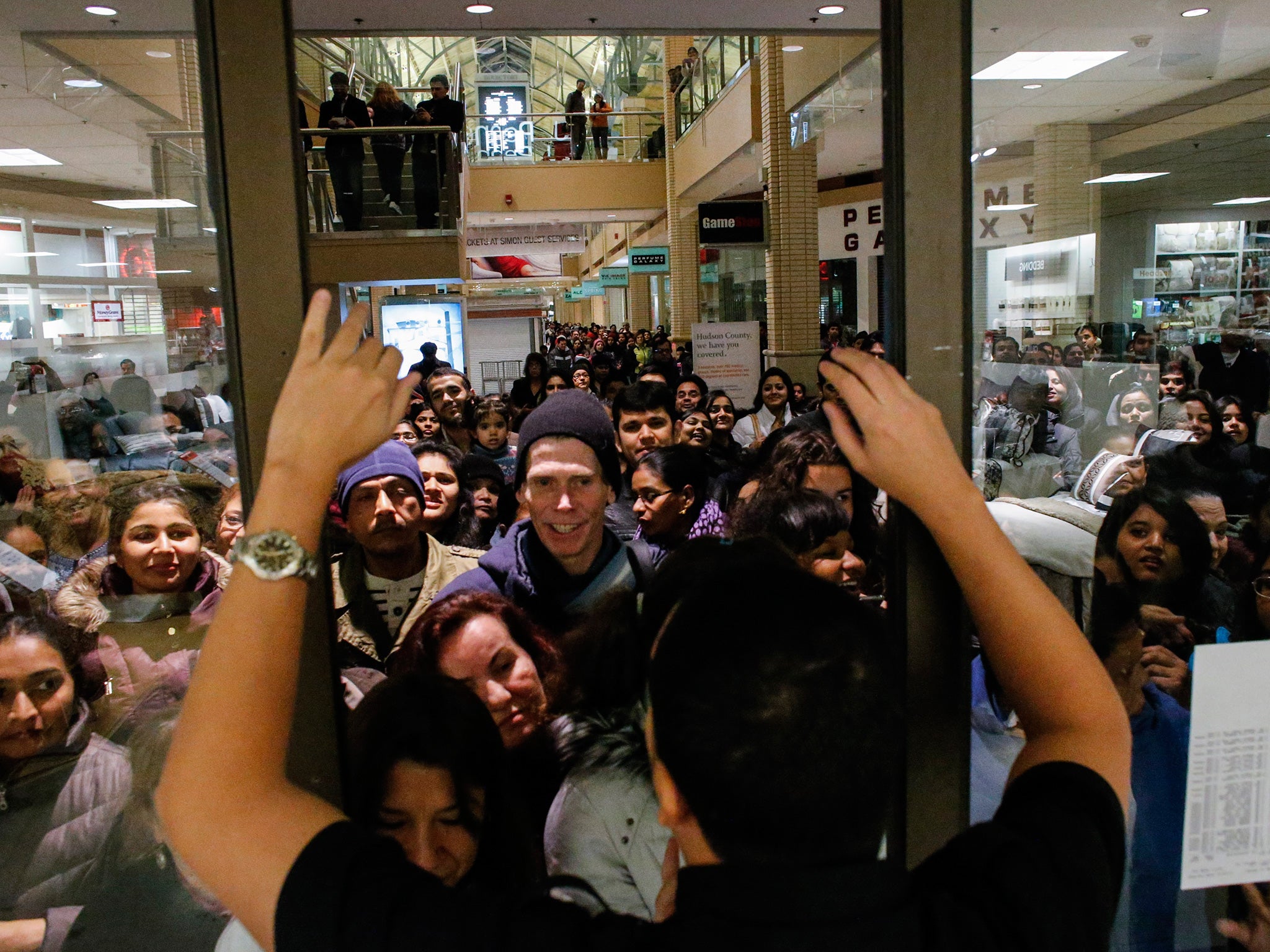Black Friday 2016: Five ways retailers are tricking you into buying stuff you probably don't need
With shoppers more savvy than ever, retailers are having to find new ways to get us to open our wallets. Some of their ideas are better than others
Black Friday is known to be the best day to hunt for a bargain whether you’re in the US or the UK. The shopping blowout, which takes place on Friday, will see a whopping £5bn spent by British shoppers.
However, consumers should beware of misleading offers and retailers tricks to make them buy products they don't really need.
An investigation by consumer watchdog Which? has discovered that many Black Friday special offers last year at two major UK electrical shops were potentially misleading and may have breached consumer protection rules.
In one case, Currys claimed shoppers were saving £450 on a TV, when in fact it should have listed the saving as £50. The watchdog said that while promoting a discount such as was “£100, now £50”, the "was" price should be the most recent price the item was sold at for 28 consecutive days or more, and not a price that is more than six months old. However, Which? found this rule was not followed on numerous occasions
Vickie Sheriff, director of campaigns and communications at Which?, says: “Shoppers might be surprised to learn that only half of Black Friday deals are actually cheapest on Black Friday. If you’re thinking about starting your Christmas shopping around Black Friday, do your research as some ‘deals’ may not be all they’re cracked up to be.”
Retailers know their shops will be filled with customers and are finding news ways to get shoppers to open their wallets.
Hannah Maundrell, editor in chief at money.co.uk, advises: "Take on Black Friday armed with a list of items you want and how much they cost full price. Decide how much you can afford to spend and do a deal with yourself not to spend a penny more. Don’t buy goods not on your list just because they’re on offer and always research to see if you can buy the item cheaper elsewhere before you part with your cash."
Here are the five ways retailers are tricking you into buying products you don't need:

Getting people through the door
Last year, police were called to supermarkets and stores across Britain as stores opened their doors to hundreds of customers on one of the biggest shopping days of the year.
A number of shops opened at midnight, boasting “massive bargains” – and officers were called to four London supermarkets to ensure that sale-goers “were able to enter and exit the stores safely”.
Nobody was injured and no arrests were made, Scotland Yard said. The same scenes were recreated in Cardiff, where South Wales Police reported a number of calls from staff at Tesco stores who were concerned about “customer conduct”.
Black Friday, with its promises of in-store bargains – such as 40-inch LED TVs at £139 a pop at Asda or cheap tablets at Currys PC World – draws the more ravenous of bargain hunters to stores, even if many still question the logic of an annual UK sales event pegged to the US Thanksgiving holiday weekend. But the question among shoppers should probably be: what is the quality like on a £139 TV made by Polaroid – a company best known for their obsolete instant cameras?
Also, once through the door, how much extra will be pushed on us? An extended warranty? An overpriced HDMI cable? A £100 wall bracket? Before you know it you have spent double what you planned.
Amazon has gone one step further, offering deals every 10 minutes lasting only a few hours, meaning shoppers will head to its website several times a day, clicking on items of interest and giving the website a whole new set of data so that when the sales end it can pump full price goods at customers, knowing exactly what they bought and what they probably still want.
And with limited time to buy, the impulse to throw caution to the wind is instantly increased.
Finally, keep a close eye on just how much of a discount you are getting compared with how much it is usually sold for. Carpet and sofa firms got in trouble earlier this year for pushing their “50 per cent off” sales despite the original higher price being offered for just a few days.
Keeping shoppers in store
Once you have taken the plunge and headed out on Black Friday, what other tricks do the retailers have up their sleeves to keep you instore and shopping?
Big department stores and shopping centres have struggled with this question more than most, because fewer shoppers want to head off for a day in the stores.
In John Lewis’s case the retailer has started introducing a wide range of extras. In recent years it has launched restaurants and coffee shops, teaming up with Hotel Chocolat and Ham Holy Burger.
Others have followed suit, including Debenhams, which spent millions transforming its flagship Oxford Street store into a “destination”, offering restaurants and a prosecco bar in the process.
Expect other stores to go one step further and allow you to pay for your goods through your phone from your café table in the store, while a member of staff gift wraps it as you order another £3 latte.
However, not all retailers have managed to extend their offers beyond the traditional with any great success. Tesco’s coffee shops and Giraffe restaurants were supposed to keep customers around for longer, but the target audience failed to be wooed.
Richard Hyman, a retail consultant at RAH Advisory and chairman of the consultancy George Bailey, explained the importance of winning over your customers with extras they actually want.
He said: “The trick of the trade is to have a clear understanding of your customers and relevance for them.”
Picking up those time-poor shoppers
While some shoppers may want to spend hours in a store, wandering through different departments, getting interactive with the latest gadget, or enjoying a fine coffee, others are rushed for time.
Previously, these shoppers were being won over by the online retailers, with people shopping at work from their desks, or scanning through a website on their tablet before bed.
Now, high street retailers have woken up to this huge untapped market, which could net millions from highly paid workers who have the money to spend, but perhaps not the time to spend it.

Argos last year launched its first ever London Underground store, in a tiny corner of Cannon Street Station. Bosses deliberately chose the station in the banking heart of the capital where traditionally those working in the finance sector have the least amount of spare time.
David Robinson, the chief operating officer of Argos, explains: “Customers tell us time and time again that they want to be able to order a product and collect it at a time and place that suits them, and with certainty that it will be there.”
John Lewis has also entered the fray, with its own click-and-collect store in London’s St Pancras station, and the supermarkets are fighting over transport hubs for the opportunity to offer click-and-collect in train station carparks across the land.
Personalised deals
And with time-poor shoppers, come those who want just the information aimed specifically at them. Analysts predict that the days of the huge red posters proclaiming “70 per cent off everything” could be a thing of the past, as shoppers are increasingly targeted via mobile phones.
Huge swaths of data have been collected by companies, with millions spent on expensive programmers working out how to harness the information and pump out deals that will be relevant to their customers.
However, Hyman urges caution. “I think a lot of retailers think having a database is an end in itself,” he says. “But it’s about how relevant you’ve been to them in the past. Personalisation isn’t just about having the means to communicate with customers. It’s about what you say to them and there’s no reason to believe junk emails will work any more than paper junk mail."
If all else fails
There are still some of the traditional ploys retailers turn to, including the displays of chocolate at the checkout – as favoured by WH Smith and Sainsbury’s Locals.
The smell of freshly baked bread wafting through the store continues to draw shoppers in. Gift sets can also help the lazier among us pick up a present for that distant uncle, or that rarely seen sibling. And of course, the good old three-for-two promotion will continue to persuade us to buy more than we need.
Join our commenting forum
Join thought-provoking conversations, follow other Independent readers and see their replies
Comments
Bookmark popover
Removed from bookmarks